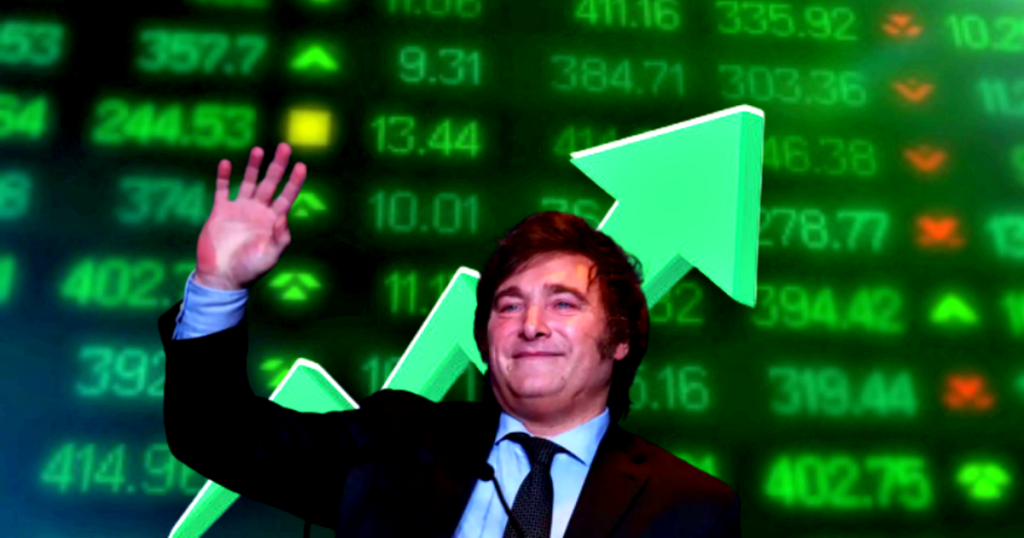It’s one positive development after the other: economic improvements in a country’s economy are not magic, but rather the result of serious, unrelenting work.
It was just a couple of days ago when President Javier Milei told Argentines in a televised address the good and rare news: his government is successfully taming reckless public spending, which resulted in a rare – and welcome – first quarter budget surplus.
Read more:
Now, a mere four months into office, Argentine President Javier Milei has also pulled off another critical – almost miraculous – feat in an economy plagued by systemic inflation: he stabilized the peso.
Bloomberg reported:
“The peso has, in fact, not only stopped plunging day after day but in one key foreign-exchange market […] it’s actually rallying sharply. The peso has soared 25% against the dollar over the past three months in the market, known as the blue-chip swap, which is used by many investors and companies. That’s more than the gains posted by any of the 148 currencies that Bloomberg tracks against the dollar.
It’s a shocking statistic in a country where the currency is seemingly in a never-ending state of freefall. (The smallest annual decline in the past decade was 15%.) And it underscores the lengths that Milei has gone to to rein in bloated government spending, choke off demand for everything in the economy, including dollars, and tame inflation that’s skyrocketed to an annual pace of almost 300%.”
The work to tame the economy is so intense, that Milei’s claims that his budget cuts are ‘the largest in the history of humankind’ are only a bit of a hyperbole.
“The cuts he imposed add up to the equivalent of almost 4% of the country’s economic output, an adjustment so aggressive that central bank officials estimate it’s larger than 90% of all those carried out in the world over the last several decades.”
The work is far from over, and dangers lie ahead: the political pressure to scale back his fiscal program will certainly mount, but the president is not worried about paying the political cost that comes with austerity.
The peso is performing so well now that the central bank can now buy dollars to replenish currency reserves.
“What’s different now is that Argentines, for the moment at least, have more confidence in the peso, curbing demand for the safety of dollars. (This allowed the central bank to lower interest rates Thursday for the fourth time since Milei took office.) Moreover, with the budget cuts in place, the central bank is no longer directly financing government spending by printing money, bringing an end to a constant source of pressure on the currency.”
The economic policy is starting to become rational, and things that were not expected are happening:
“That he’s now overseeing a torrid peso rally is an ironic twist for a man who had deemed the currency so worthless on the campaign trail that he likened it to ‘excrement’ and said it should be scrapped entirely.”
The post Javier Milei’s Common Sense Economics Fuel Confidence Rally That Makes Argentine Peso the Best Performing Currency in the World appeared first on The Gateway Pundit.







